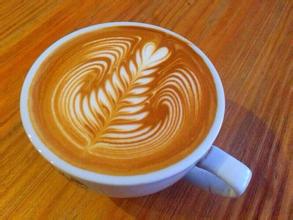If you sink to a third-and fourth-tier city, does the coffee shop scene have a chance to transform the retail industry?
AimeeLu, which starts from WeChat business, already has a team of agents who come from all over the country and belong to various industries. Now, the original agents can try to buy back shares by joining AimeeLu Coffee, and unlike the new franchisees, they do not have to pay extra fees. At present, AimeeLu Coffee is being encouraged to join, and stores in Tianjin, Tangshan, Hefei, Wuhan and Yichang are being planned.
However, as a new attempt, if AimeeLu wants to go offline on a large scale, it will face the question of service: can the combination of "barista + clerk" in the store enhance the skin care experience? The image of "coffee shop clerk" is not clear and accurate, how to gain customers' trust in cosmetic products? If there are more franchisees, how to standardize the service in terms of makeup and coffee?
AimeeLu used the model of "offline experience to promote online consumption". On its first day of business, it reaped more than 6,000 yuan in turnover, of which skin care products accounted for nearly 70% of the revenue. This may show that in the context of the retail industry being eroded by e-commerce, the coffee shop scene, as the entrance to the flow, has some room for extension: whether from the shaping of the brand image, or from the radiation of the market scope, into the efficiency of consumption, the commercial value of the afternoon tea scene needs to be developed.
Of course, this "coffee shop +" does not necessarily add cosmetics, it may also be other consumer categories, the key is that the scene matches and the service is in place.
Retail is not easy to do, and WeChat businesses are also moving towards a bottleneck. To this end, AimeeLu, a beauty and skin care brand active on online platforms such as Taobao and WeChat merchants, is trying to go offline to break the deadlock it faces. Liu Lu, founder of the AimeeLu brand, opened a cafe with the theme of skin care experience in Loudi, Hunan Province on Sept. 6.
Founder Liu Lu believes that according to his WeChat business's sales experience, "separation of products from consumption" is a major difficulty in promotion: first, it is difficult to establish a new brand image in the minds of consumers; second, it is difficult to realize the experience of skin care products. Mailing experience will prolong the decision-making time and reduce the desire to buy. Third, several girlfriends take a nap in a cafe and may experience beauty and skin care projects together between talking and laughing, a phenomenon that does not occur in front-line retail.
On the one hand, the format of first-and second-tier cities is relatively saturated, storefronts and logistics costs are high, and the O2O model is still available in third-and fourth-tier cities; on the other hand, residents of third-and fourth-tier cities have a yearning for a new way of life. it is a fashionable consumption experience for girlfriends to enjoy afternoon tea together.
In response, AimeeLu tries to impress potential customers in third-and fourth-tier cities with "cafes that can share afternoon tea with their girlfriends", promoting their brand image, winning their trust and promoting their perceptual consumption of cosmetics with a comfortable environment, relaxed atmosphere, fashionable experience and intimate service. At AimeeLu Cafe, customers can experience AimeeLu skin care products while enjoying coffee desserts while shopping online or offline-the retail industry can be combined with coffee in addition to simply selling online, making it a distinctive and interesting element in offline cafes.

Important Notice :
前街咖啡 FrontStreet Coffee has moved to new addredd:
FrontStreet Coffee Address: 315,Donghua East Road,GuangZhou
Tel:020 38364473
- Prev

Starbucks' first overseas coffee roasting workshop and Zhenxuan restaurant settled in Shanghai in 2017.
At this Starbucks coffee roasting workshop and selection restaurant in Shanghai, customers will experience the art of coffee roasting, production and cooking at zero distance, and taste Starbucks selected coffee. This unique Starbucks coffee roaster, which integrates coffee roasting, production, education and retail, has received strong support from the government of Jing'an District, Shanghai. Before that,
- Next

The advantage of developing coffee industry in Yunnan has obviously become the largest coffee trading service platform in China.
Yunnan has obvious advantages in developing coffee industry, with a history of more than a hundred years and a natural superior ecological environment, so it is one of the best coffee growing areas in the world. In 2015, the planting area of coffee in the province reached 1.77 million mu, with an output of 130000 tons, ranking first in the country. In 2015, Yunnan exported 43000 tons of coffee, earning 150 million US dollars in foreign exchange, ranking among Yunnan's agricultural products.
Related
- What grade does Jamaica Blue Mountain No. 1 coffee belong to and how to drink it better? What is the highest grade of Blue Mountain coffee for coffee aristocrats?
- What are the flavor characteristics of the world-famous coffee Blue Mountain No. 1 Golden Mantelin? What are the characteristics of deep-roasted bitter coffee?
- Can I make coffee a second time in an Italian hand-brewed mocha pot? Why can't coffee be brewed several times like tea leaves?
- Hand-brewed coffee flows with a knife and a tornado. How to brew it? What is the proportion of grinding water and water temperature divided into?
- What is the difference between Indonesian Sumatra Mantinin coffee and gold Mantinin? How to distinguish between real and fake golden Mantelin coffee?
- What does bypass mean in coffee? Why can hand-brewed coffee and water make it better?
- Unexpected! Ruixing Telunsu lattes use a smoothie machine to foam milk?!
- % Arabia's first store in Henan opens into the village?! Netizen: Thought it was P's
- Does an authentic standard mocha coffee recipe use chocolate sauce or powder? Mocha Latte/Dirty Coffee/Salty Mocha Coffee Recipe Share!
- What is the difference between Vietnam egg coffee and Norway egg coffee? Hand-brewed single product coffee filter paper filter cloth filter flat solution!

